Reflective Practice: Improving Health and Social Care Services
VerifiedAdded on 2023/01/12
|12
|582
|89
Essay
AI Summary
This essay examines the significance of reflective practice within the health and social care sector, highlighting its role in enhancing service quality and fostering personal and professional development among healthcare practitioners. It discusses the purpose of reflection, emphasizing its ability to bridge the gap between theory and practice, stimulate continuous improvement, and cultivate self-awareness. The essay explores how reflection connects knowledge with practical experience, develops practitioner skills, identifies personal strengths and weaknesses, and promotes self-directed learning. Furthermore, it references established reflective models such as Kolb’s experiential learning model and Gibbs' reflective cycle, illustrating how these frameworks can be applied to systematically review, analyze, and evaluate experiences, leading to improved practices and behavioral changes. The conclusion underscores that regular self-review and learning from experiences are crucial for healthcare professionals to identify and address their weaknesses, ultimately enabling them to perform more effectively. Desklib provides access to similar solved assignments and resources for students.
1 out of 12




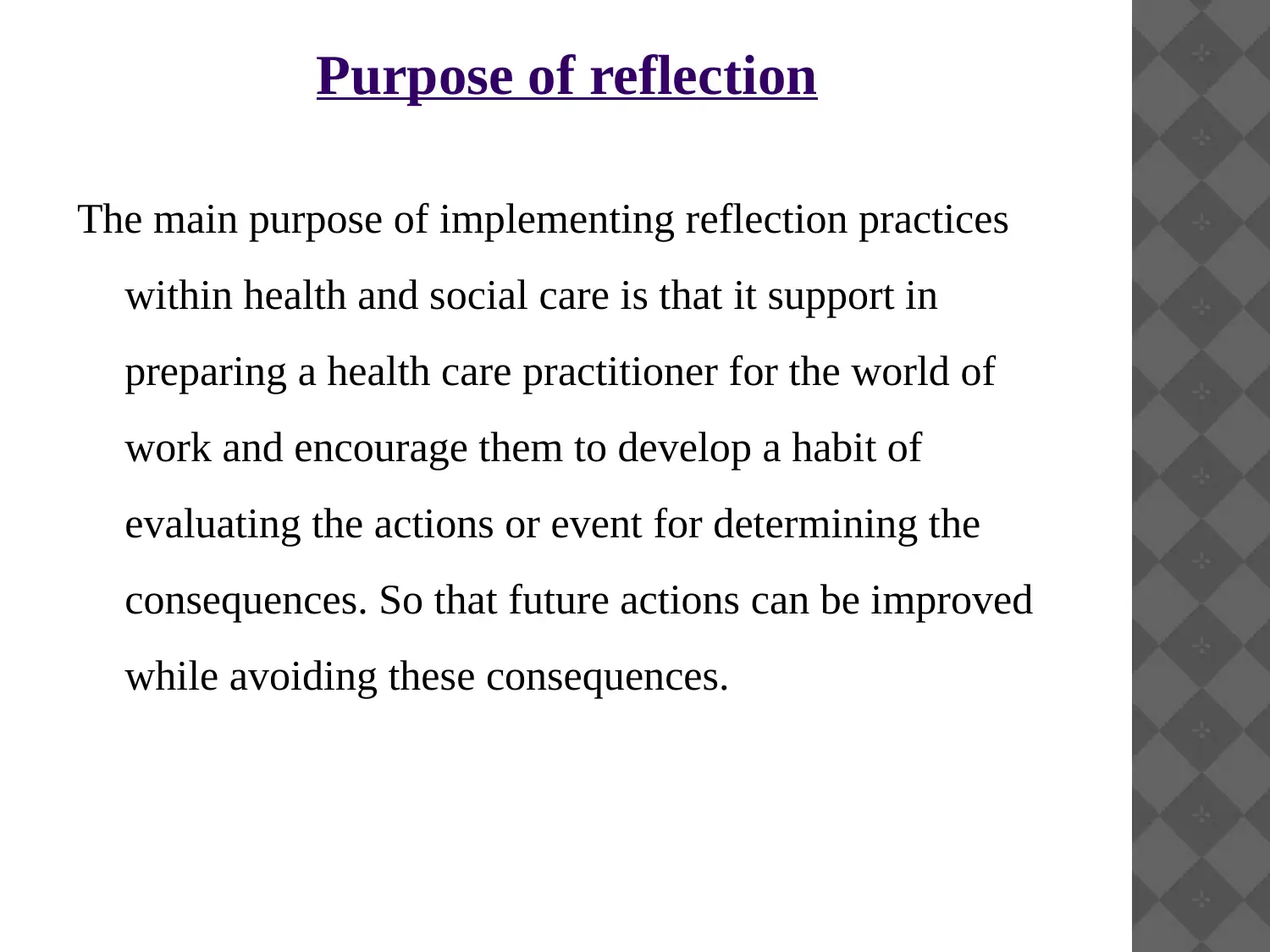
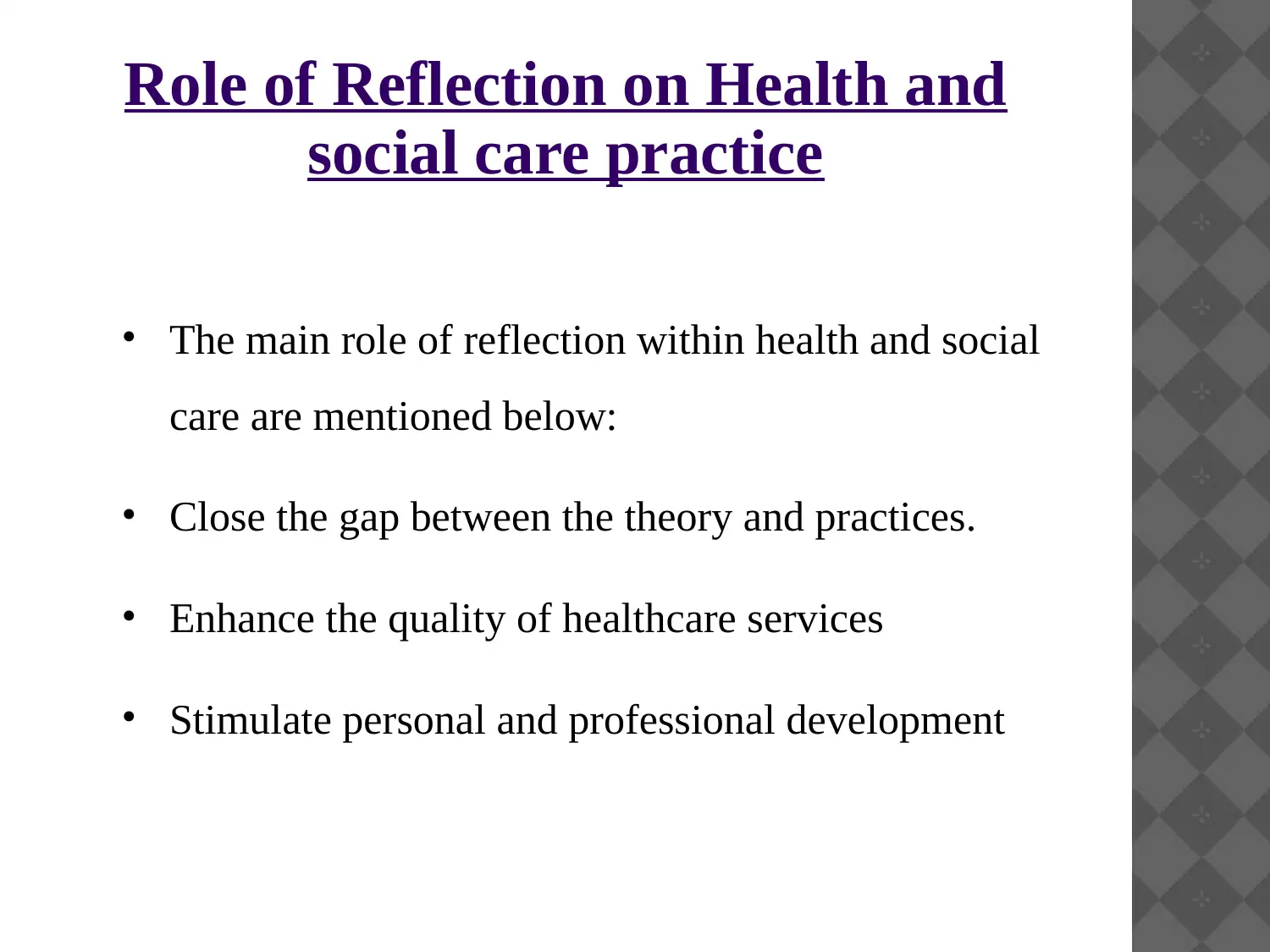
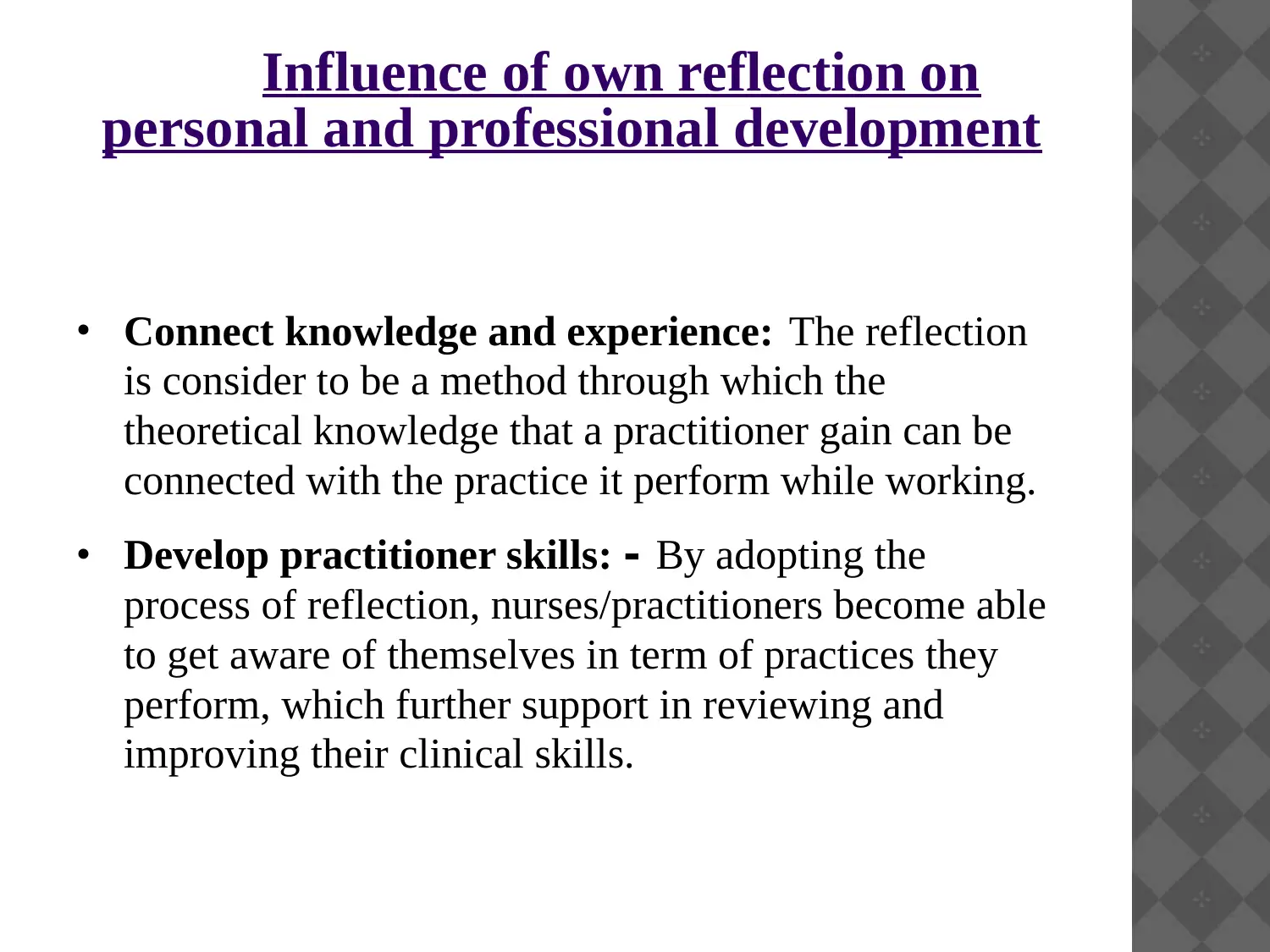


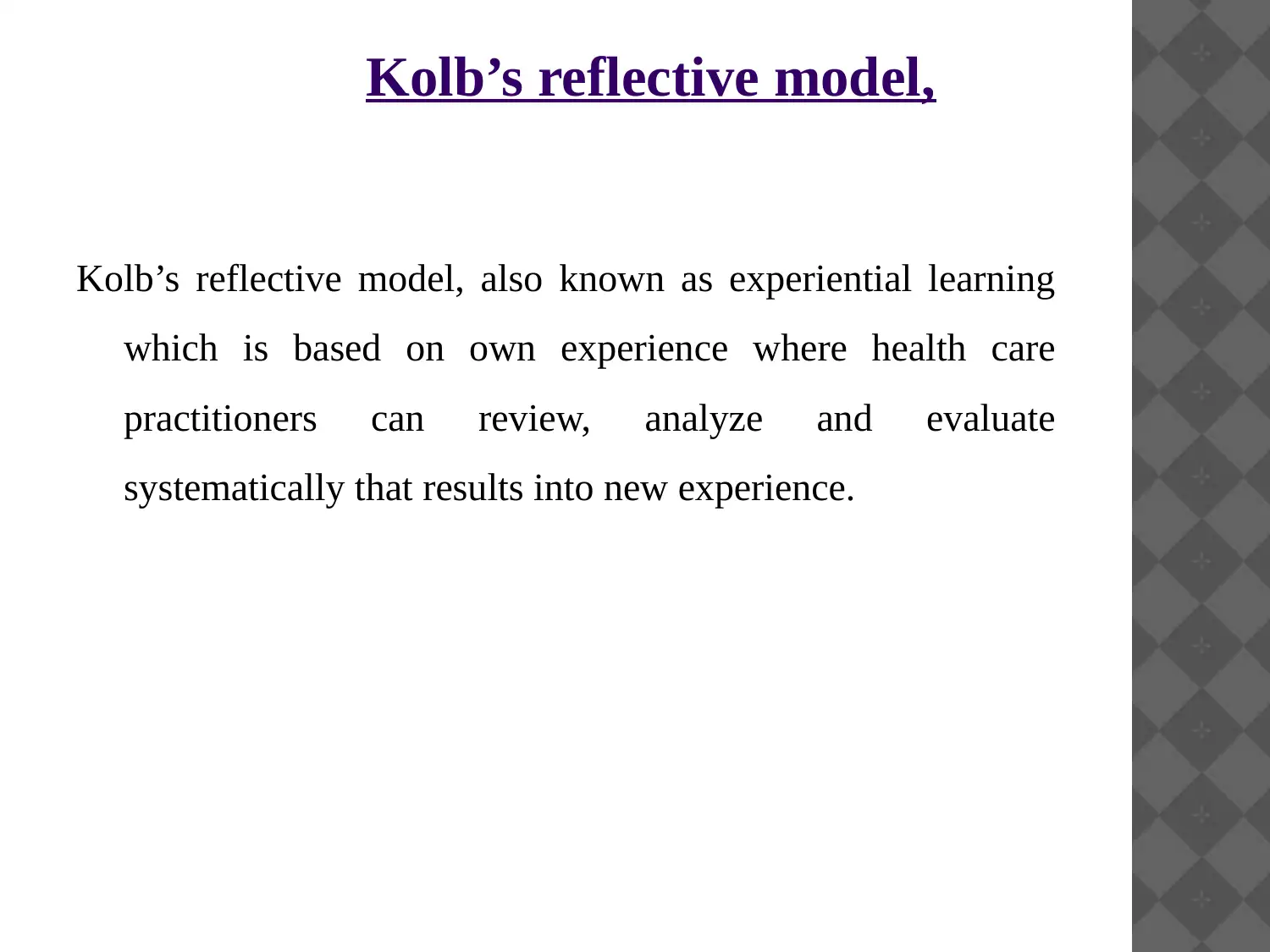
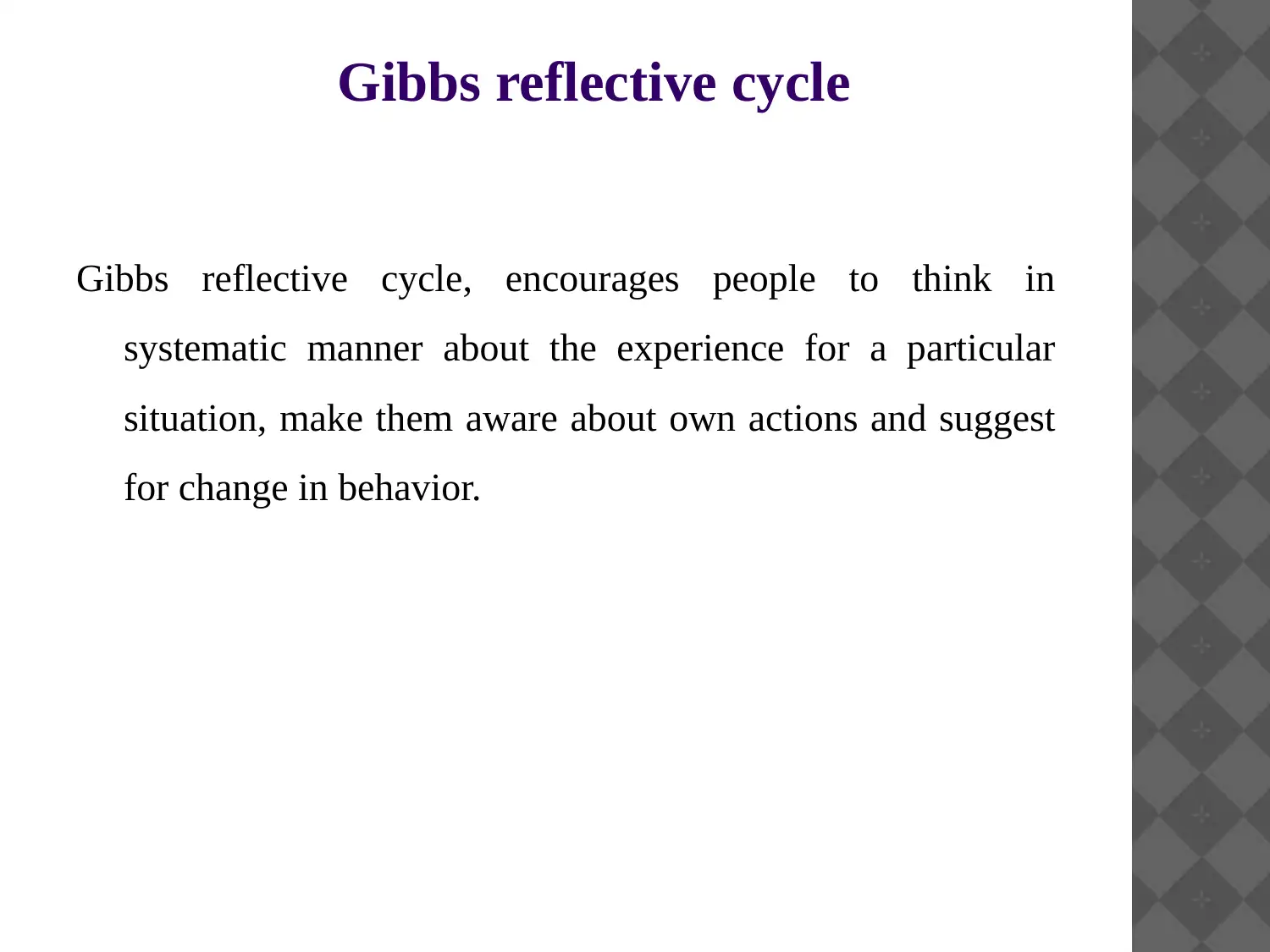
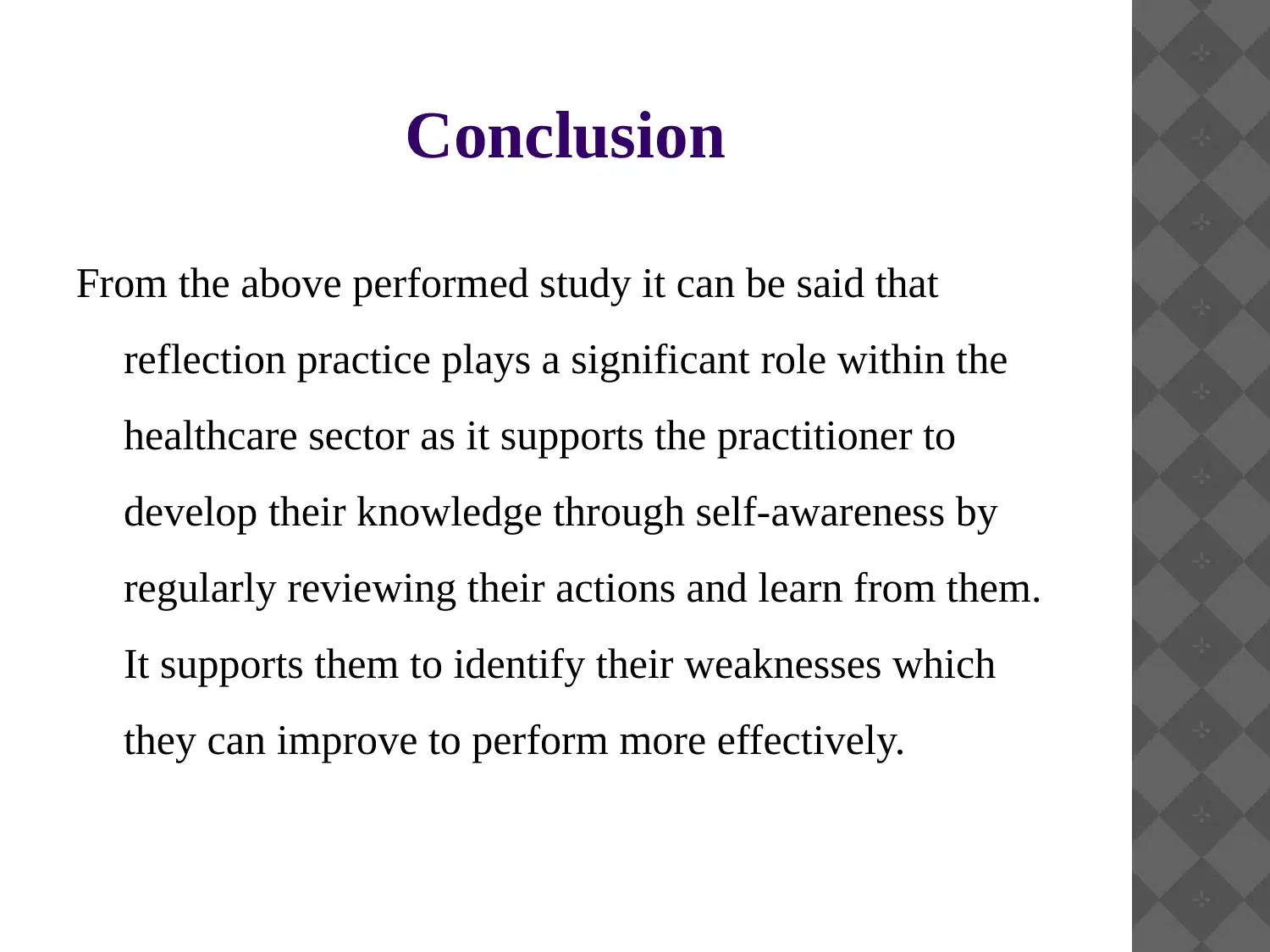
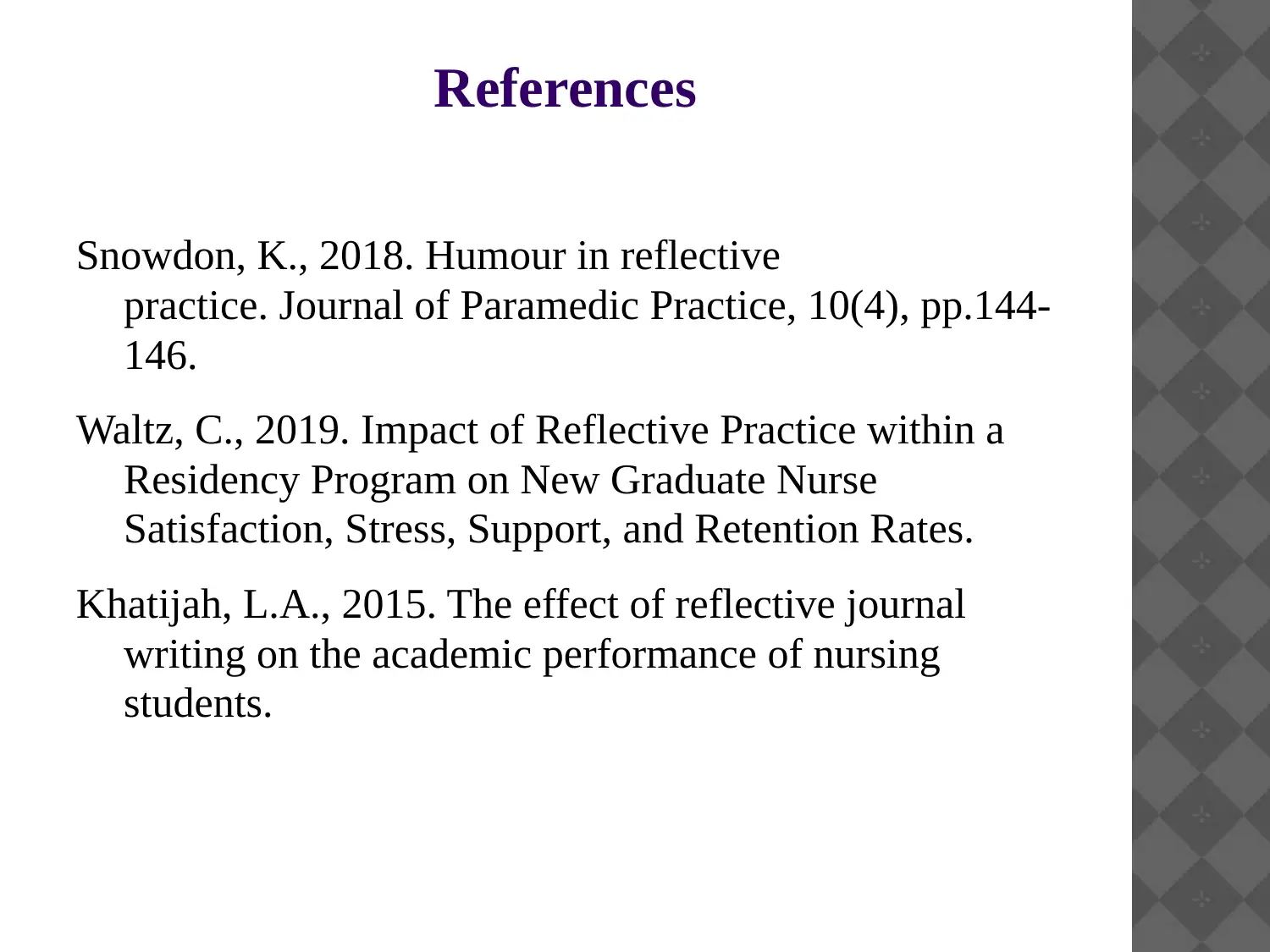





![[object Object]](/_next/static/media/star-bottom.7253800d.svg)